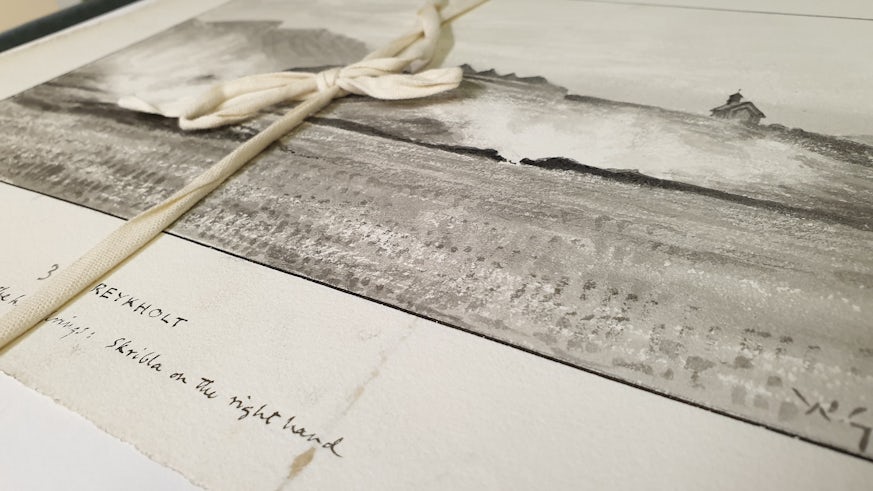How landscape has shaped our culture
1 December 2021

Rare glimpse of national treasures reveals centuries-old impact of landscape on great cultural works in new exhibition
Rare books and illustrations, charting centuries of engagement with the natural world, are on show in a new exhibition at Cardiff University Special Collections and Archives.
Literature and the Environment features 50 treasures – all chosen by academics from Cardiff Environmental Cultures Research Group - to show how humanity has used the natural environment to work on, think with, enjoy and abuse.
Among the gems showcased are essays prompting colonising the environment by the Jacobean statesman Francis Bacon, holograph manuscripts on the cognitive and emotional effects of walking through the countryside by WW1 writer Edward Thomas, and contemporary fine press editions of millennial activist poetry against the eco-crisis.
Two cases contrast the hellish effect – on people and on places – of nineteenth-century intensive mining in the South Wales Valleys with the same period’s longing for the wilderness, in haunting illustrations of Icelandic tundra and lost glaciers by the polymath W. G. Collingwood.
A final case shows how nature can bite back, showing books destroyed by living animals, such as worms and mice, and by fire, an increasing problem for libraries in the face of changing climates.
Holding world-class collections on a dazzling variety of topics, the University’s Special Collections and Archives works to support research and enable access to primary sources and unique research materials and remains open to all – currently by appointment due to pandemic measures.
Cardiff Environmental Cultures Research Group brings together scholars to interrogate the cultural, historical, and theoretical forces that shape our relationships with the environment, as part of the work of CardiffScienceHumanities.
Literature and the Environment runs at Special Collections and Archives at the Arts and Social Sciences Library, Corbett Road until April 2022 (open semester weekdays, 9am – 5pm). All are welcome.